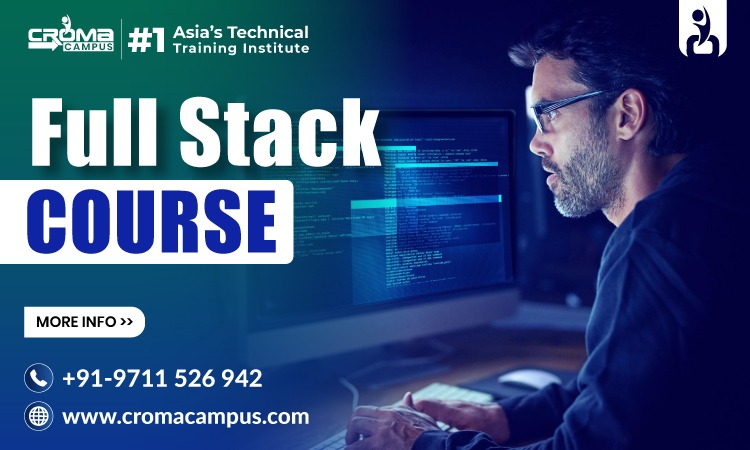
How Blockchain Technology is Revolutionizing Full-Stack Development?
Today, Blockchain is not just about cryptocurrency anymore, but this has grown into something better. Today, it is changing how developers are building apps from the beginning to the end. There are many tools, such as decentralized apps (dApps) and Web3, which have become more popular, and developers have started to think differently. Instead of depending on a single system, developers are building apps that focus on sharing control, being open, and giving users more ownership of their data and experience.
In this article, we are going to discuss how Blockchain Technology is Revolutionizing Full-Stack Development. So if you are looking to grow your career in this field, then taking the Full Stack Developer Course Online can help you learn at your own pace from anywhere. Then let’s begin discussing this in detail:
Ways How Blockchain Technology is Revolutionizing Full-Stack Development:
Here, we have discussed the different ways in which Blockchain Technology is Revolutionizing Full-Stack Development. So if you are from Delhi or nearby areas, then taking the Full Stack Developer Course in Delhi can help you learn from the professionals who have years of experience.
Changing How Backends Work
In the past, most apps used central servers and databases. But with blockchain, things are different. Now, many apps use smart contracts as the backend. These are bits of code that run automatically when certain rules are met — no server needed. This creates a trustless system, where the blockchain makes sure everything works as it should, without relying on a central authority.
Platforms like Ethereum, Solana, and Polygon let developers use smart contracts for storing data, logging in users, and running app logic. This can lower costs and reduce the risk of downtime. However, it also brings new challenges, like gas fees and the fact that once smart contracts are deployed, they can't be changed easily — so testing is super important.
New Frontend Needs for Web3
Blockchain also needs different frontends than the regular web app does. So there will be no need to depend on the traditional APIs because they talk with the smart contracts using Web3 libraries like Web3.js, Ethers.js, or Wagmi
These apps also need to work with crypto wallets such as MetaMask, WalletConnect, or Coinbase Wallet. Users don’t log in with a username and password — they use their wallet address. This completely changes how user identity is handled.
Frontend tools like React and Next.js are still popular, and libraries like RainbowKit and ConnectKit help make wallet connections and transactions easier to set up.
Rethinking Data Storage
Blockchain isn’t great for storing large files, so developers now use hybrid storage. That means keeping important data (like ownership records) on-chain, and big files (like images or videos) off-chain.
There are tools such as IPFS that allow developers to store large files in a decentralized way. There are many other options, such as Arweave and Filecoin offer long-term storage. So these cloud services also get used with the decentralized tools.
To keep everything safe, developers store hashes of the files on the blockchain. So this may help in noticing everything if any of the changes are made.
New Tools for Blockchain Developers
Blockchain development has its own set of tools. Frameworks like Hardhat and Foundry help with writing, testing, and deploying smart contracts. They even let you simulate a local blockchain for development.
Platforms like Infura, Alchemy, and QuickNode let developers connect to real blockchains without running their own nodes — kind of like how cloud providers let you use databases without setting up servers.
Security and testing are also getting better. Libraries like OpenZeppelin offer safe, pre-built smart contracts, while tools like Tenderly help track and fix issues in smart contracts after they’re live.
Well, there are many institutions across India, where you can take training for he same. These cities include Ahmedabad, Mumbai, Gurgaon, Chennai, Bangalore, etc., where such training is provided with practical knowledge. Taking a Full Stack Developer Course in Gurgaon can also offer you placement support, as many institutions do these days.
Conclusion:
Blockchain technology is changing the way full-stack apps get built. Instead of depending on the central servers, developers are now using decentralized systems. Here, the control will be shared and the data may get more safe. Also, this is changing how users interact with apps — using wallets instead of usernames and passwords, and signing transactions instead of clicking buttons.
Post a comment